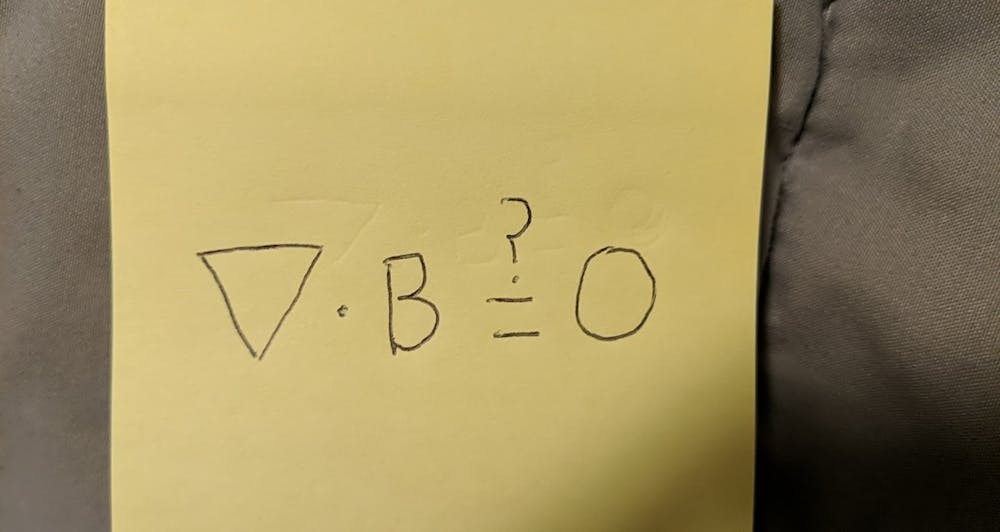
In pop culture, we see a physicist surrounded by boards, with a handful of integrals scattered everywhere and math operations we have never seen in our entire life. Perhaps this is true of some physicists but certainly not all. I think a major reason why physics seems like an unapproachable subject, studied only by a few presumed to be smart(er?), is precisely because of this pop culture approach to physics. Physics is not a subject that only a few should enjoy. Physics is certainly not a subject that only a few should understand. Instead, physics should be for everyone.
It is not just about putting physical concepts in terms that can be understood by laymen but it is about rephrasing the subject to demonstrate its terrifying beauty. It’s about looking at it from a lens that makes equations literary phrases, each one having a deeper meaning than the other. Each one showcasing the symmetry in nature, the beauty of this world. Physics is the literature describing this world — of that I have no doubt. I only wish it was taught as such.
I realize the draw of science fiction, of black holes and world-destroying particles, of time travel and space. I understand the need to highlight the fantastical in physics in order to get people interested. I even see why it works; we are drawn by these mysterious concepts of space and time, so much so that it leaves the realm of physics and enters that of philosophy instead. I understand that.
But sometimes I regret the emphasis on the mysterious because, for me, the mundane, the everyday, the non-mysterious aspects of physics are equally as beautiful and equally as deserving of praise. If only the equations that describe our everyday world were seen as a lens to understand the everyday, I believe physics would become much more than a pre-med hurdle. So today I want to write about the beauty of the so-called mundane in physics.
Classical Mechanics was the first physics class I took and, to this day, it is probably the hardest class I took. But the idea that you can take a situation, an everyday situation and describe it with equations is mindblowing. The idea that you can look at a system and (somewhat) characterize its energies and its forces to understand what's going on is beautiful. It is beautiful that we can take something that's happening and describe it in terms of mathematics. It's beautiful that we can make predictions about those same things using mathematics.
And to know that the physical world, even the fully classical one is so much more complex than what we see and the energies we can account for is humbling. It’s humbling to know that even the most mundane action of lifting your hand, or pushing a wall is so much more than just lifting your hand and pushing a wall. It is a demonstration of the symmetry within nature, of the conservation of energy, of the role of friction, of Newton’s laws. Physics is simply trying to understand the beauty in our world more fully and more precisely.
Even in dreaded Physics II or in Electricity and Magnetism, there is a certain poetry in the world of charges and circuits. Everything in those classes is derived from something far more fundamental — Maxwell’s Equations. Within Maxwell's Equations we can find so much. We find the unity of the electromagnetic wave, the carrier of those waves and one of the constants of nature — the speed of light. We can find a description of the world we did not have before. We can see how ingeniously light travels, how it is a perfect blend of perpendicular electric and magnetic waves. It’s amazing how a few symbols can reveal so much.
One of the simplest equations in Maxwell’s equations is the dot product of the dell operator with the magnetic field equaling to zero. Wrapped up in this elegant equation is a sometimes debated, but mostly true fact: there is no magnetic monopole. We can have a positive or a negative charge but we don't have something equivalent for a magnet. The north and south poles do not exist independently of each other. All this in basically five symbols. That's a heavy weight for only five symbols to carry.
Physics has been an exercise in feeling stupid and being okay with feeling stupid, because of course you are going to be stupid compared to the genius of nature. Perhaps we need to normalize feeling stupid. Perhaps sitting with the feeling of not knowing is the greatest feeling you can have as a human because it reminds us of our position in this world. We can try and try to describe what we see — through math or poetry or prose, but at the end of the day, our language as humans is limited, our imaginations inhibited.
We are only describers, cheaply trying to imitate what already exists, and physics is a powerful powerful reminder of that. That is the terrifying beauty about physics, that is the terrifying beauty of even the mundane, the un-mysterious and the everyday.
Zubia Hasan is a senior from Karachi, Pakistan studying Physics. Her column, Trial & Error, explores relationships between people, cities and herself.





